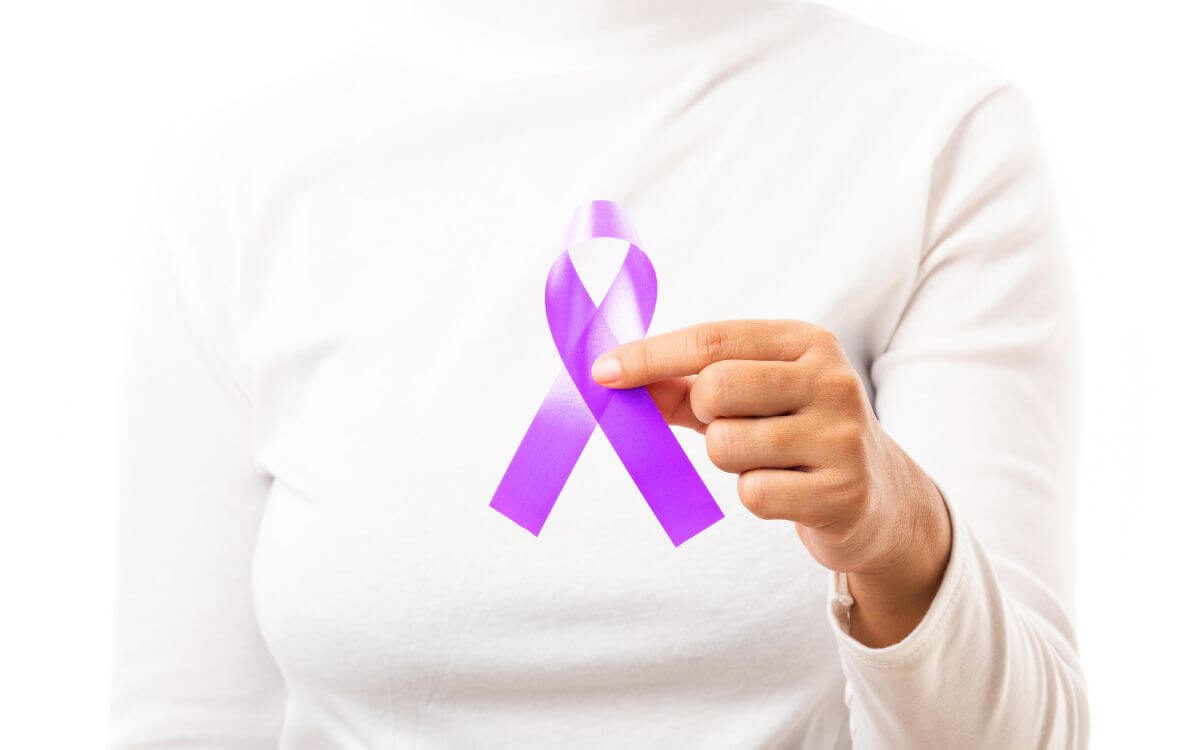Fibromyalgia for caring partners.
Caring for someone with fibromyalgia can be challenging. There is no known cure for fibromyalgia, and the condition can cause a great deal of pain and fatigue. Fibromyalgia has plenty of resources for those who suffer, but fibromyalgia for caring partners is an underserved population.
If you are supporting someone with fibromyalgia, know that you are not alone. There are ways to help your partner manage their fibromyalgia and live a more comfortable life.
As a caring partner, you can provide support in many ways. You can help with household tasks, offer to massage sore muscles and make sure your loved one is getting enough rest. You can also offer emotional support by listening to your partner and being understanding of their fibromyalgia.
There are also many things you can do to take care of yourself because caring for someone with fibromyalgia can be exhausting, so make sure to take time for yourself. Get regular exercise, eat a healthy diet and make sure to get enough sleep.
To fully understand how to support someone with fibromyalgia effectively, you need to answer the following questions:
- What is fibromyalgia?
- What are the symptoms of fibromyalgia?
- How is fibromyalgia diagnosed?
- What is the treatment for fibromyalgia?
- Does fibromyalgia progress with age?
- How does fibromyalgia affect the sufferer?
- How does fibromyalgia affect the partner?
- How do you help someone with fibromyalgia?
- What to say to someone with fibromyalgia?
- What not to say to someone with fibromyalgia?
- What do you need to know about fibromyalgia?
- What is fibromyalgia?
- What are the symptoms of fibromyalgia?
- How is fibromyalgia diagnosed?
- What is the treatment for fibromyalgia?
- Does fibromyalgia progress with age?
- How does fibromyalgia affect the sufferer?
- How does fibromyalgia affect the partner?
- How do you help someone with fibromyalgia?
- What to say to someone with fibromyalgia?
- What not to say to someone with fibromyalgia?
- Tips for people with fibromyalgia.
- Tips for caring partners of people with fibromyalgia.
- Fibromyalgia for caring partners.
What do you need to know about fibromyalgia?
Since fibromyalgia is one of those chronic conditions that people often don’t understand, it can be helpful to educate yourself and your loved ones about fibromyalgia.
So in order to support your partner in the best possible way, you need to learn about the condition as much as possible. Below you will find all the basic details about fibromyalgia to get you started. Let’s begin by answering the first question of what is fibromyalgia…
What is fibromyalgia?
Fibromyalgia is a long-term condition that causes pain all over the body. Fibromyalgia is also associated with other symptoms like fatigue, sleep problems, and mental health issues. There is no known cure for fibromyalgia, but treatments can help manage the symptoms.
Since you are interested in fibromyalgia, I wrote a “Fibromyalgia for Caring Partners” e-Book, in which 1st chapter is absolutely FREE!
FREE Fibromyalgia e-Book
Fibromyalgia for Caring Men

What are the symptoms of fibromyalgia?
The most common symptom of fibromyalgia is pain. The pain associated with fibromyalgia can range from mild to severe and can be constant or intermittent. Other symptoms of fibromyalgia include fatigue, sleep problems, brain fog, and mental health issues like depression and anxiety.
How is fibromyalgia diagnosed?
Fibromyalgia is typically diagnosed by a doctor after ruling out other conditions that could cause the same symptoms. There is no one test for fibromyalgia, so doctors will often use a combination of medical history, physical exam, and lab tests to make a diagnosis.
What is the treatment for fibromyalgia?
There is no known cure for fibromyalgia, but treatments can help manage the symptoms. Treatment options include medication, lifestyle changes, and therapy. Avoiding stress and a holistic approach seems to be the best.
Does fibromyalgia progress with age?
There is no definitive answer to this question as fibromyalgia affects everyone differently. For some people, fibromyalgia symptoms may improve with age, while for others, the condition may worsen over time.
How does fibromyalgia affect the sufferer?
Fibromyalgia can have a significant impact on the sufferer. The condition can cause pain, fatigue, sleep problems, and mental health issues. Fibromyalgia can also make it difficult to do everyday activities and participate in social activities.
How does fibromyalgia affect the partner?
Caring for someone with fibromyalgia can be challenging. The partner may have to help with household tasks, make sure the fibromyalgia sufferer is getting enough rest, and offer emotional support. The partner may also need to take care of themselves to avoid burnout.
How do you help someone with fibromyalgia?
There are many ways you can help someone with fibromyalgia. You can help with household tasks, offer to massage sore muscles, make sure your loved one is getting enough rest, and offer emotional support. You can also educate yourself about fibromyalgia for caring partners so that you can better understand the condition and how it affects your loved one.

What to say to someone with fibromyalgia?
There are a few things you should keep in mind when talking to someone with fibromyalgia. First, avoid telling the person that fibromyalgia is “all in their head.” Second, try to be understanding and patient. Third, avoid making assumptions about what the person can or cannot do. Fourth, offer support and encouragement.
What not to say to someone with fibromyalgia?
There are a few things you should avoid saying to someone with fibromyalgia. First, avoid telling the person that fibromyalgia is “all in their head.” Second, avoid making assumptions about what the person can or cannot do. Third, do not tell the person that they need to just “relax” or “take it easy.” Fourth, avoid giving unsolicited advice.
Tips for people with fibromyalgia.
To care for someone with a chronic illness like fibromyalgia, you need to take care of yourself first. It means getting enough sleep, eating healthy foods, exercising regularly, taking breaks from caring, setting boundaries, staying organized, communicating with your loved one, and seeking professional help if needed.
But if your partner doesn’t know how to help themselves, here are 13 tips on what they can do:
- Get enough sleep: fibromyalgia can cause fatigue, so it’s important to get enough rest.
- Exercise: moderate exercise can help improve fibromyalgia symptoms.
- Eat a healthy diet: nutrition is important for overall health and can help reduce fibromyalgia symptoms.
- Take breaks: fibromyalgia can be taxing, so make sure to take breaks and care for yourself.
- Ask for help: don’t be afraid to ask family and friends for help.
- Join a support group: there are many fibromyalgia support groups available online and in person. This can be a great way to meet other people dealing with the same thing.
- Find a fibromyalgia doctor: it’s important to find a doctor who is knowledgeable about fibromyalgia and can help you manage your symptoms.
- Get a massage: massage can help relieve fibromyalgia pain.
- Try acupuncture: acupuncture is a traditional Chinese medicine technique that has been shown to help with fibromyalgia pain.
- Use heat or cold: some people find relief from fibromyalgia pain by using heat or cold therapy.
- Take fibromyalgia medications: there are many different fibromyalgia medications available, so talk to your doctor about which one is right for you.
- Avoid caffeine: caffeine can worsen fibromyalgia symptoms, so it’s best to avoid it.
- Relax: Stress can worsen fibromyalgia symptoms, so it’s important to find ways to relax and de-stress.
Tips for caring partners of people with fibromyalgia.
There is unspoken pressure on caring partners of people with fibromyalgia to be perfect. You may feel like you have to do everything right in order to help your loved one. But the truth is, there is no perfect way to care for someone with fibromyalgia.
Everyone is different and what works for one person may not work for another, what works for my wife will not necessarily work for your partner because fibromyalgia can be very unpredictable.
Below, I listed 15 ways you can help your partner with fibromyalgia:
- Listen: fibromyalgia can be isolating, so it’s important to be a good listener.
- Be patient: fibromyalgia can cause pain, fatigue, and brain fog, so it’s important to be patient.
- Be understanding: try to put yourself in your partner’s shoes and understand what they are going through.
- Offer support: let your partner know that you are there for them and offer support however you can.
- Encourage self-care: help your partner take care of themselves by doing things like getting enough sleep, eating healthy, and exercising.
- Help with household chores: fibromyalgia can make everyday tasks like laundry and dishes seem impossible, so offer to help out around the house.
- Go on outings: fibromyalgia can make it hard to socialize, so plan outings and activities that your partner can enjoy.
- Be positive: try to focus on the positive aspects of life and be a source of positivity for your partner.
- Educate yourself: learn as much as you can about fibromyalgia so you can be a better support system for your partner.
- Advocate: be an advocate for your partner and help them navigate the challenges of living with fibromyalgia.
- Connect with other partners: reach out to other partners of people with fibromyalgia and connect with them for support.
- Take care of yourself: it’s important to take care of yourself as well so you don’t burn out.
- Seek professional help: if you are struggling to cope, seek professional help from a therapist or counselor.
- Join a support group: there are many fibromyalgia support groups available online and in person. This can be a great way to meet other people dealing with the same thing.
- Find fibromyalgia-friendly activities: there are many fibromyalgia-friendly activities that you and your partner can enjoy together, such as yoga, Tai Chi, and meditation.
FREE Fibromyalgia e-Book
Fibromyalgia for Caring Men

Fibromyalgia for caring partners.
What else can I say that hasn’t been said in this article?
Fibromyalgia for caring partners can be challenging, but it’s also rewarding. So it’s not all negative, there are plenty of positive aspects of loving a chronically ill partner, including fibromyalgia.
My advice to caring partners is to take things day by day. Don’t try to do too much at once, remember to take care of yourself as well, and try to have a positive outlook for the future because things can and do get better.
Chronic illnesses such as fibromyalgia can be hard on any relationship, but they can also build a stronger bond between partners. It teaches you gratitude, appreciation, and patience. So even though fibromyalgia can be tough, try to focus on the positive aspects of your relationship.
Gratitude can help you focus on what’s good in your life, even when things are tough. Appreciation can help you see the value in your partner, even when they are going through a tough time. And patience can help you weather the storms of fibromyalgia, knowing that things will eventually get better.
If you’re struggling to cope with fibromyalgia, or if your relationship is suffering, don’t hesitate to seek professional help.
And remember to share your own thoughts in the comments section below. We are always eager to hear from our readers!


About Me
Hi, I’m Lucjan! The reason why I decided to create this blog was my beautiful wife, who experienced a lot of pain in life, but also the lack of information about endometriosis and fibromyalgia for men…
